Film: The Wolf of Wall Street (2013)
Character: Jordan Belfort (Leonardo DiCaprio)
Primary lens: Evolutionary psychology
Primordial instincts
On the surface, Jordan Belfort epitomises everything that might offend the moral compass of the ethically upright. His life is an endless carousel of unrestrained greed and performative masculinity, fuelled by excess and sustained through relentless consumption. The kind of life the self-assured might be quick to dismiss as moral bankruptcy, both a case of personal pathology and the predictable outcome of late-stage capitalism. It’s tempting to see his downfall as something he brought on himself — a transgression entirely of his own making. And yet this intuitive urge to condemn may be precisely what stops us from asking a more unsettling question: is this simply the behaviour of a man and a system without limits, or an amplified expression of instincts we all carry?
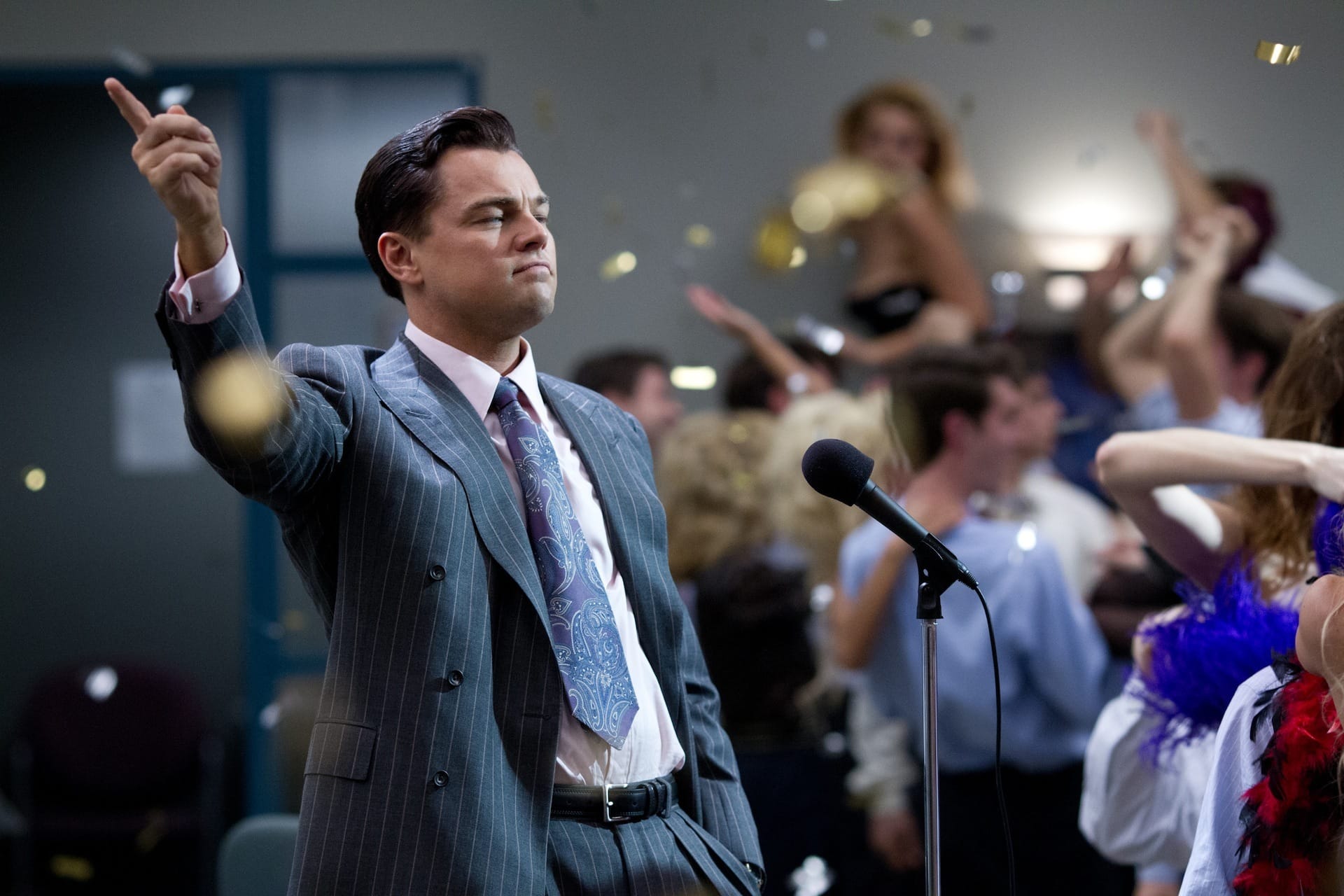
For our ancestors on the savanna, the drive to acquire resources, assert dominance and secure social standing often meant the difference between survival and being left behind (Buss, 2024). Today, those same instincts rarely determine life or death, but they haven’t changed much. Thousands of years on, we're still locked in a game of cat and mouse, chasing security, shelter and status across landscapes that are less hostile, but not less demanding: Wall Street, Silicon Valley, Canary Wharf. While Belfort gives his instincts free rein, most of us learn to contain ours, accepting the quiet trade-offs that come with restraint. And with this restraint, a quiet unfulfillment often settles in.
We trade the exhilarating freedom of being our own boss for the comforting certainty of a regular payslip. We give up the joy of becoming a sculptor for the prestige of becoming a stakeholder. We swap the long-harboured dream of publishing a novel for the reality of printing a weekly report. We call it maturity, a rational choice all the while mistaking submission for sovereignty and indulging the illusion of free choice. Occasionally, the sacrifice feels justified: a child needing schooling, a parent needing care or a partner's dream we quietly choose to fund at the cost of our own. More often than not, however, the truth is more sobering. The stories we tell ourselves — and rehearse until they pass for truth — are what psychologists call motivated rationalisation: post-hoc justifications that protect our sense of agency while concealing the more ancient forces that shape our decisions (Yong, Li & Kanazawa, 2021). Though the golden handcuffs we forge and wear may appear to be a product of the post-industrial age, they simply echo the ancient instincts we've never outgrown — instincts that once kept us alive.
Golden handcuffs: the evolutionary imperative
Evolution has no purpose or plan, only a relentless tendency to favour behaviours that help us survive just long enough to reproduce and repeat the pattern. "Be fruitful, and multiply, and replenish the earth" — even the Scripture appears to echo the immutable force of nature that drives us forward without foresight, an ancient algorithm urging continuity above all else. It is at this intersection of the algorithmic and the divine that we find the paradox and the quiet liberation of being able to see Belfort not as a villain, but the prisoner of forces far beyond his willpower. For all the progress and the technological leaps we've made over the millennia, he, like so many more of us, remains a caveman dressed in a designer suit. But what if Belfort’s indulgence and our restraint are two sides of the same evolutionary coin? If Belfort is the wolf, are we not the sheep — tamed, but still governed by the same ancient imperative to measure worth in territory, trophies and tribal ranks?
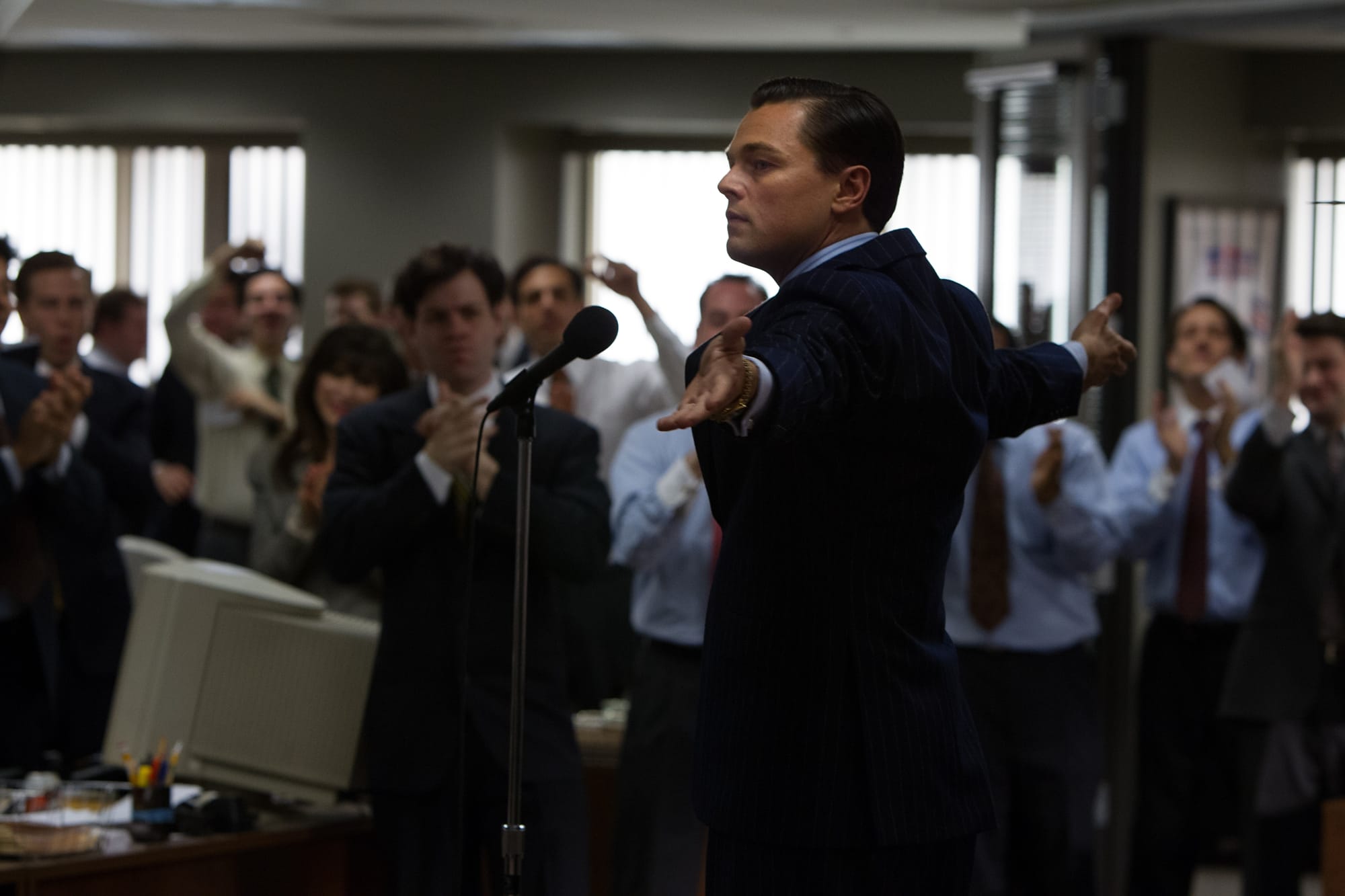
"Let me tell you something. There is no nobility in poverty. I've been a rich man and I've been a poor man. And I choose rich every f***ing time" [00:45:30]
A brazen confession, isn't it? And yet, how many of us might, upon reflection, identify with Belfort, even if we find his admission too crude, too revealing and too primal to ever say aloud. To grant ourselves the freedom to be — and to act — as we truly are, unencumbered by the demand to be decent, balanced and play along nicely. It's scary, unfiltered and something we'd rather not face. And so we tell a different story: one where we cast ourself as the hero, the martyr without a choice, who'd rather leave, but has to stay, comforted by the consolation of the deferred stock options.
We like to think we stay for a good reason: the perks, the prestige or the promise of upward mobility. But more often than not, we stay because leaving feels like losing status, certainty or the story we’ve spent years rehearsing. In evolutionary terms, we aren't broken, just poorly adapted (Okasha & Binmore, 2012). On the savanna, a missed opportunity might bruise, but a misstep could kill. And so we evolved to fear loss more than we value gain — a phenomenon known in psychology as loss aversion: the ancient bias that makes us overvalue what we have and dread what we might lose, even when the trade-off no longer serves us (Haselton & Nettle, 2006)
Golden handcuffs don’t just bind us with comfort; they bind us with fear. Not of failure, but of forfeiture. Of walking away from the salary, the title and the LinkedIn endorsements that signal we matter. And so we stay. Not because we’re greedy, or weak, but because our nervous system and the reward centres in our brains still think we’re foraging on the savanna hoping not to thrive, but simply to survive. We may never be fully free from instinct, but neither are we bound by it entirely. Psychology reminds us that most patterns, once recognised, can be reframed, interrupted, and — if we’re willing — slowly rewritten.
Beyond the savanna: rewriting the instinct
The paradox of golden handcuffs is that they hold until they hurt, and this rarely happens overnight. Instead, the discontent accumulates gradually: first simmers, then boils and finally spills into a moment where what once felt like safety begins to feel like captivity. We want to act, but the old scripts we've lived by still keep us at bay. To move, we must reframe the narratives we’ve long believed to be true. We may choose to do this alone, perhaps in the dignified stillness of Lower Largo, a seaside village in eastern Scotland, far away from the haste of the metropolis and close to the nature that shaped us. Or maybe we find ourselves in the presence of a thoughtful psychologist who, with quiet presence, helps us see the old stories differently and begin to imagine what else they might mean. Whether in solitude or in company, what matters isn't the journey — though it, too, may hold meaning of its own — but the destination: a place where the old narratives of fear, doubt and existential angst no longer shape the scripts we never truly authored.
We may begin to discard the lingering notion that leaving is danger and instead see it as adaptive migration, the kind of journey our ancestors made when the landscapes around them could no longer sustain what they hoped to become. As we set out on a journey to redefine who we are and revisit the values we hold but have struggled to live, the seductive power of the corporate embrace begins to loosen its grip, revealing the fragility at the heart of the system we once mistook for safety and shelter: the titles, the power and the corner office on the thirty-fourth floor. And in that unravelling, we may come to understand that true safety was never something to be found in status or structure, but something we learn and build from within. In time, we may even see that what endures isn’t the status we once held, but the legacy we leave behind. The kind of legacy that stays when we're gone, reflected in the smiles of those we loved, the stories created, and the lives we've touched. This, too, is a kind of safety — the symbolic immortality (Lifton, 1983) that outlasts the corner office and the nameplate on the door, not because it promises permanence, but because it roots us in something larger than ourselves.
Margins and marginalia
- Buss, D.M. (2024). Evolutionary Psychology: The New Science of the Mind (7th ed.). Routledge. https://doi.org/10.4324/9781003230823
- Haselton, M.G., & Nettle, D. (2006). The Paranoid Optimist: An Integrative Evolutionary Model of Cognitive Biases. Personality and Social Psychology Review, 10(1), 47–66. https://doi.org/10.1207/s15327957pspr1001_3
- Lifton, R.J. (1983). The Broken Connection: On Death and the Continuity of Life. American Psychiatric Association.
- Okasha, S., & Binmore, K. (Eds.). (2012). Evolution and Rationality: Decisions, Co-operation and Strategic Behaviour. Cambridge University Press. https://doi.org/10.1017/CBO9780511792601
- Yong, J.C., Li, N.P., & Kanazawa, S. (2021). Not so much rational but rationalizing: Humans evolved as coherence-seeking, fiction-making animals. American Psychologist, 76(5), 781–793. https://doi.org/10.1037/amp0000674
Images used throughout the article are from The Wolf of Wall Street (2013), featuring Jordan Belfort (Leonardo DiCaprio). Courtesy of MovieStillsDB. Copyright remains with the original rights holder; included under fair use for non-commercial, educational commentary.


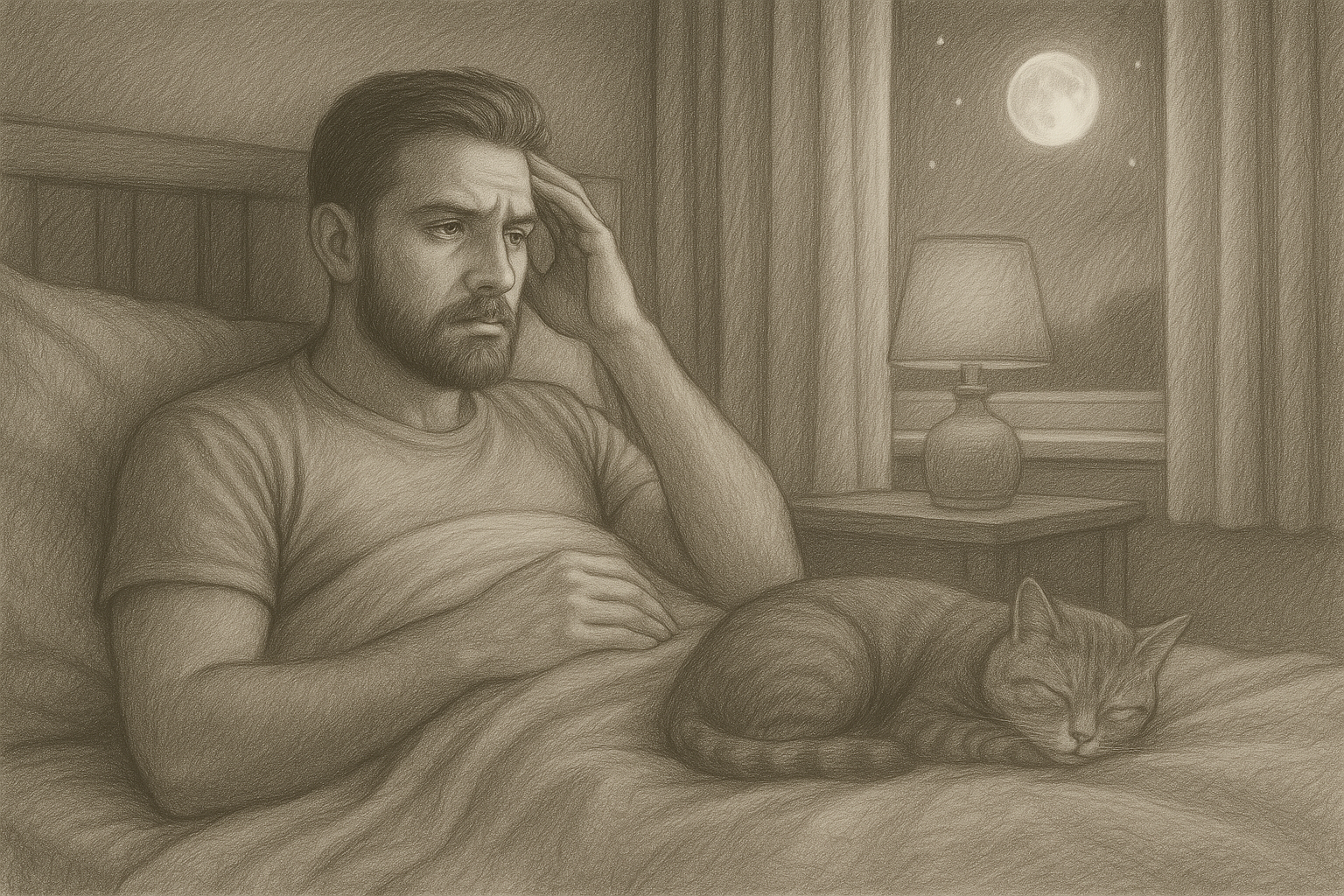
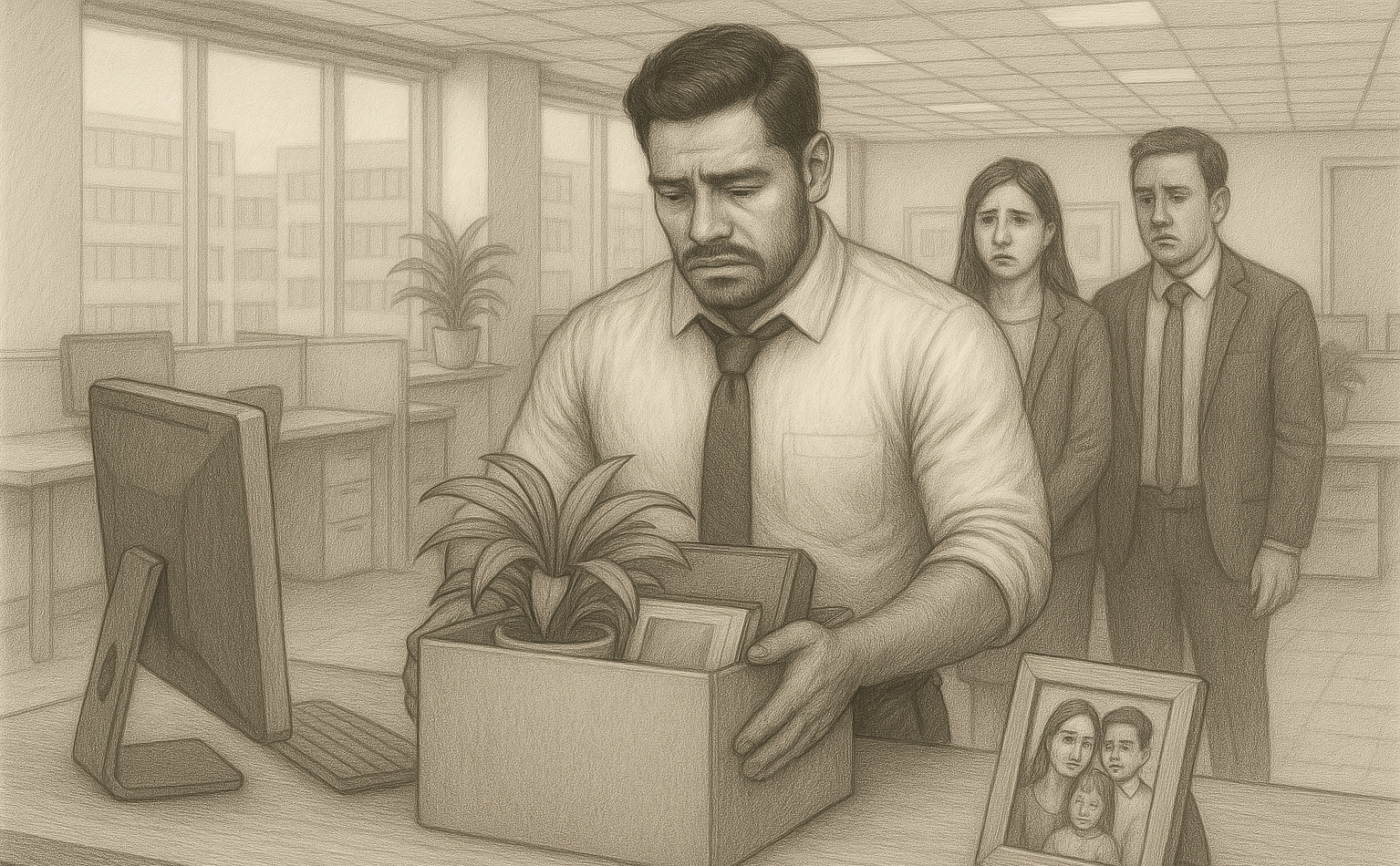
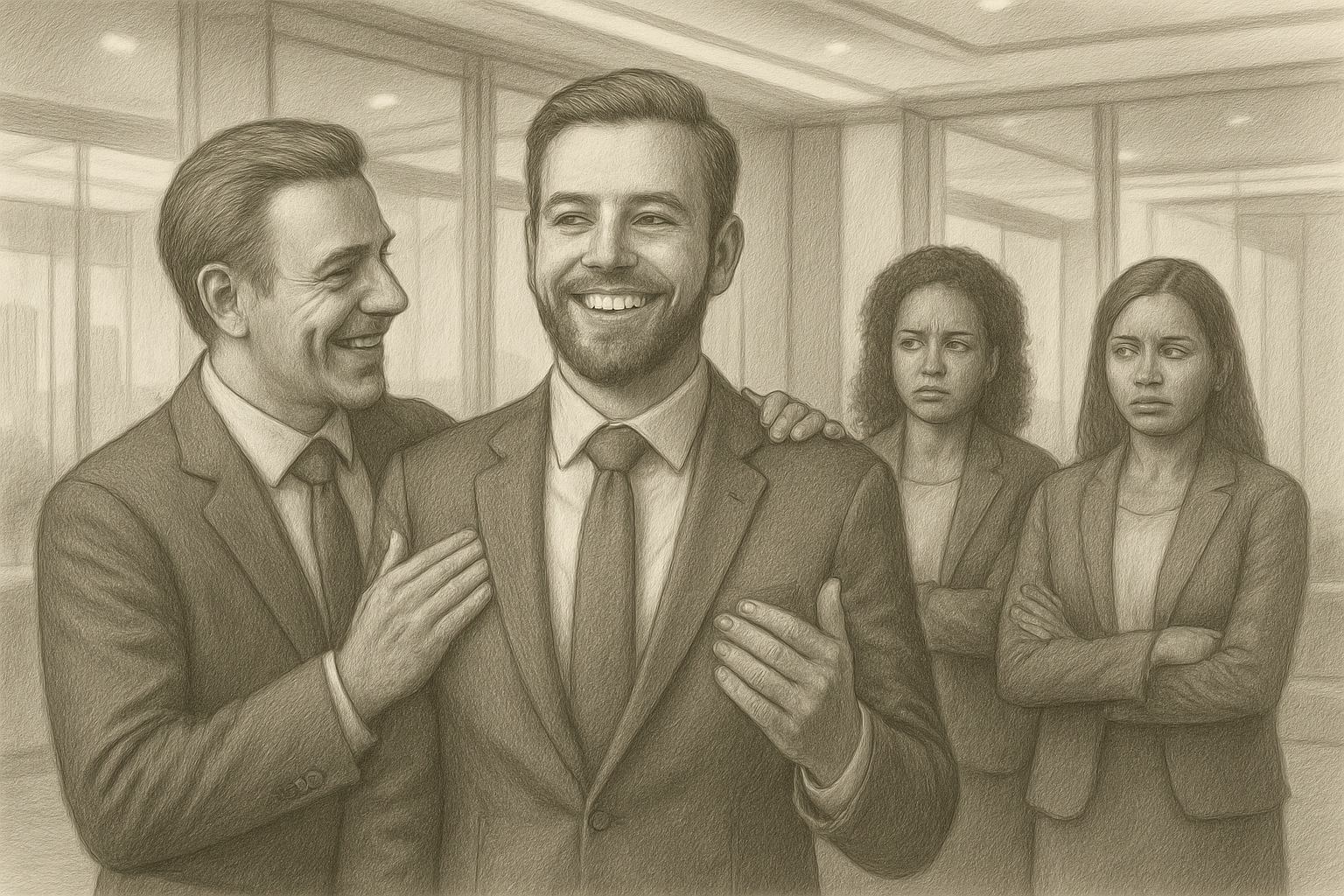
Discussion